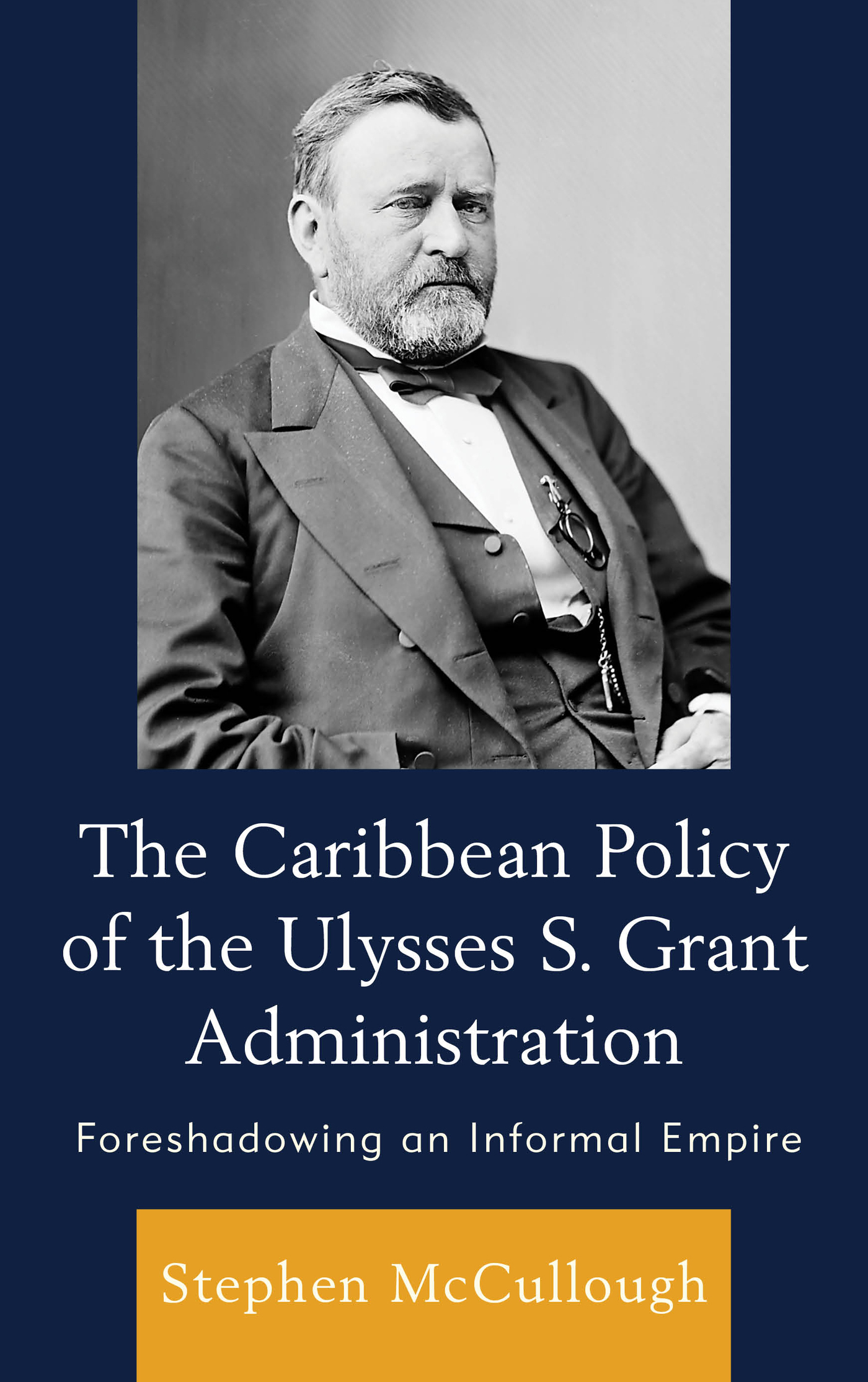The Caribbean Policy of the
Ulysses S. Grant Administration
The Caribbean Policy of the
Ulysses S. Grant Administration
Foreshadowing an Informal Empire
Stephen McCullough
LEXINGTON BOOKS
Lanham Boulder New York London
Published by Lexington Books
An imprint of The Rowman & Littlefield Publishing Group, Inc.
4501 Forbes Boulevard, Suite 200, Lanham, Maryland 20706
www.rowman.com
Unit A, Whitacre Mews, 26-34 Stannary Street, London SE11 4AB
Copyright 2018 by Lexington Books
All rights reserved. No part of this book may be reproduced in any form or by any electronic or mechanical means, including information storage and retrieval systems, without written permission from the publisher, except by a reviewer who may quote passages in a review.
British Library Cataloguing in Publication Information Available
Library of Congress Cataloging-in-Publication Data Available
ISBN 978-1-4985-0012-8 (cloth : alk. paper)
ISBN 978-1-4985-0013-5 (electronic)
 TM The paper used in this publication meets the minimum requirements of American National Standard for Information Sciences Permanence of Paper for Printed Library Materials, ANSI/NISO Z39.48-1992.
TM The paper used in this publication meets the minimum requirements of American National Standard for Information Sciences Permanence of Paper for Printed Library Materials, ANSI/NISO Z39.48-1992.
Printed in the United States of America
Acknowledgments
This book would not have been possible with the support and assistance of numerous people. My dad William McCullough and my stepmother Zita McCullough provided me with aid and moral support throughout graduate school. Without them, I may never have finished that long journey. I became a historian because of the influence of one man, Dr. James Matray of then New Mexico State University and now California State University Chico. He inspired me not only to pursue history, but U.S. diplomatic history. Dr. Howard Jones stuck with me through the long six years at the University of Alabama it took me to receive my doctorate, and his calming influence and insightful suggestions made my dissertation better. At both Lincoln University and now Bryant University Zhuhai, I benefited from colleagues and staff that allowed to finish the research to complete the manuscript. Dr. Levi Nwachuku offered me wisdom and guidance and taught me the importance of patience. Ms. Martha Parisan gave invaluable help, allowing me to continue working on the manuscript while serving as department chair. Ms. Bonnie van Horn and Ms. Ugoch Nwachuku of the Lincoln University library were great help in securing materials through Interlibrary load.
The staffs at the Library of Congress manuscript division, the Abraham Lincoln presidential library in Springfield, IL and the Newbery Library in Chicago went out of their way to help my research efforts. The Ulysses S. Grant presidential library staff in Starkville, MS were generous in finding me new materials to use and searching their archive. David Nolan in particular went out of his way to enable this research trip on spring break 2017 that allowed me to complete this manuscript.
Finally, this book is dedicated to my children. When I started this project my son Ryne and daughter Lauren were in elementary school. They are now both adults and I feel both blessed and amazed at the people they have become. Thank you for your patience with Dad throughout this whole
process.
Introduction
From 1869 to 1877, the United States found itself deeply involved in the Caribbean as Washington sought to replace European influence and colonialism with an informal American empire. The Ulysses S. Grant administration primarily dealt with an uprising in Spanish Cuba, the Ten Years War, which threatened to draw in the United States. The Cuban rebels used the United States as a base of support, causing conflict between Washington and Madrid. Many Americans, including Grant, wanted to replace Spanish rule in Cuba with a U.S. protectorate, but Secretary of State Hamilton Fish opposed American colonial entanglements. During his tenure, Fish preferred to expand U.S. commercial interests in the region rather than acquiring colonies. Grant foresaw a future where the United States dominated the Caribbean through American colonial possessions and coaling stations in the Caribbean. While they differed in methods, both shared a vision of American command of the Caribbean, that along with a U.S.-controlled Panamanian canal linking the American East Coast with the Pacific and Asia, would make the United States into a global commercial power.
Among the reasons this shared prophecy of the failed to be completed during the Grant presidency was a lack of means to implement it. The United States in 1868 was not yet a great power. Though Grant and Fishs visions shared much with Alfred Thayer Mahons that American security started with the control of the Caribbean, there simply was no American military outside of occupation forces within the South. The great armies that had defeated the Confederacy had gone home and the American Navy consisted either of obsolete ships or monitors that could not venture into deep waters. Indeed, the United States was neither the dominant military or economic power within the Americas. Fish lamented that Great Britain sold twice as many goods to Latin America as the United States.
The Caribbean was the first trade battleground between the United States and Great Britain. Grant believed that economic supremacy must be accompanied by naval bases to protect U.S. trade. These bases would come via either American colonies or leases. Ever the military strategist, Grant understood what sustained the British empire and commercial supremacy were the coaling stations a steam age navy needed tao project power. The switch from sails to steam power made colonies even more important within the Caribbean. Steam ships required frequent replenishment of their coal bunkers. The British colonies such as Jamaica and the British Virgin Islands allowed the Royal Navy to control the ocean. In 1869, the United States lacked such bases, and Grants attempted annexation of the Dominican Republic would have been the first step toward rectifying the problem. Fish assumed that U.S. economic superiority would inevitably come without the colonial entanglements Grant proposed.
Although the Civil War showed that during wartime the United States could field large forces, the postwar U.S. army was spread thin by its occupation duties in the southern states and guarding the western frontier. The U.S. Navy was plagued by obsolescent ships and shrinking budgets. Under Vice Admiral David Dixon Porter, ships were ordered to use sail as much as possible for propulsion and the amount of coal burned would be carefully measured and recorded. The U.S. Navy was a greater threat to its own sailors with its decrepit fleet than to any possible foreign adversary. The Monroe doctrine proclaimed the Americas for the Americans, but the United States had little ability to enforce it since its proclamation in 1823.
The executive branch also lacked the power in the nineteenth century to accomplish any such goal. The American electorate overwhelmingly elected Grant president in 1868 to put aside the political and economic chaos of the Andrew Johnson presidency. The victory of the Civil War hero seemingly ushered in a new era of peace and prosperity. The Republican Party now controlled the White House and Congress, and the American people expected the ugly squabbling of the Johnson years to end. Yet within Republican ranks in Congress, there was a determination that Congress, not the Executive Branch, should remain supreme. As future president Woodrow Wilson noted in 1895 in his book
Next page
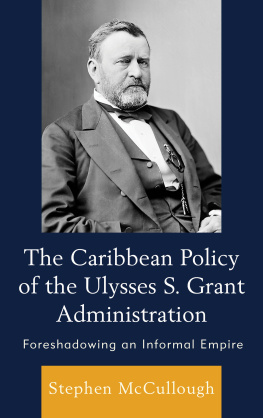

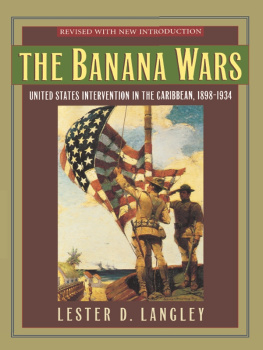



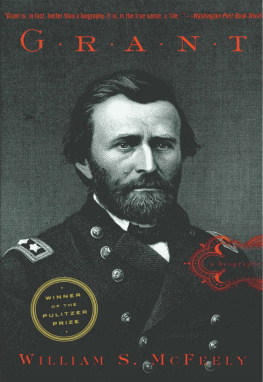
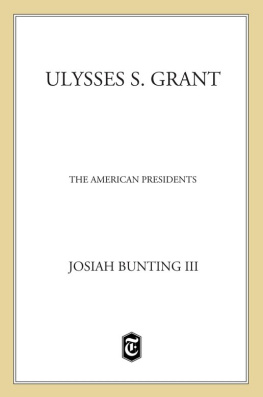
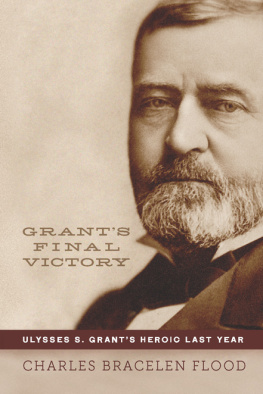
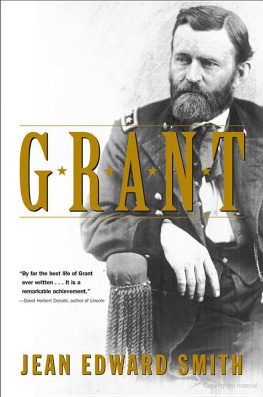
 TM The paper used in this publication meets the minimum requirements of American National Standard for Information Sciences Permanence of Paper for Printed Library Materials, ANSI/NISO Z39.48-1992.
TM The paper used in this publication meets the minimum requirements of American National Standard for Information Sciences Permanence of Paper for Printed Library Materials, ANSI/NISO Z39.48-1992.